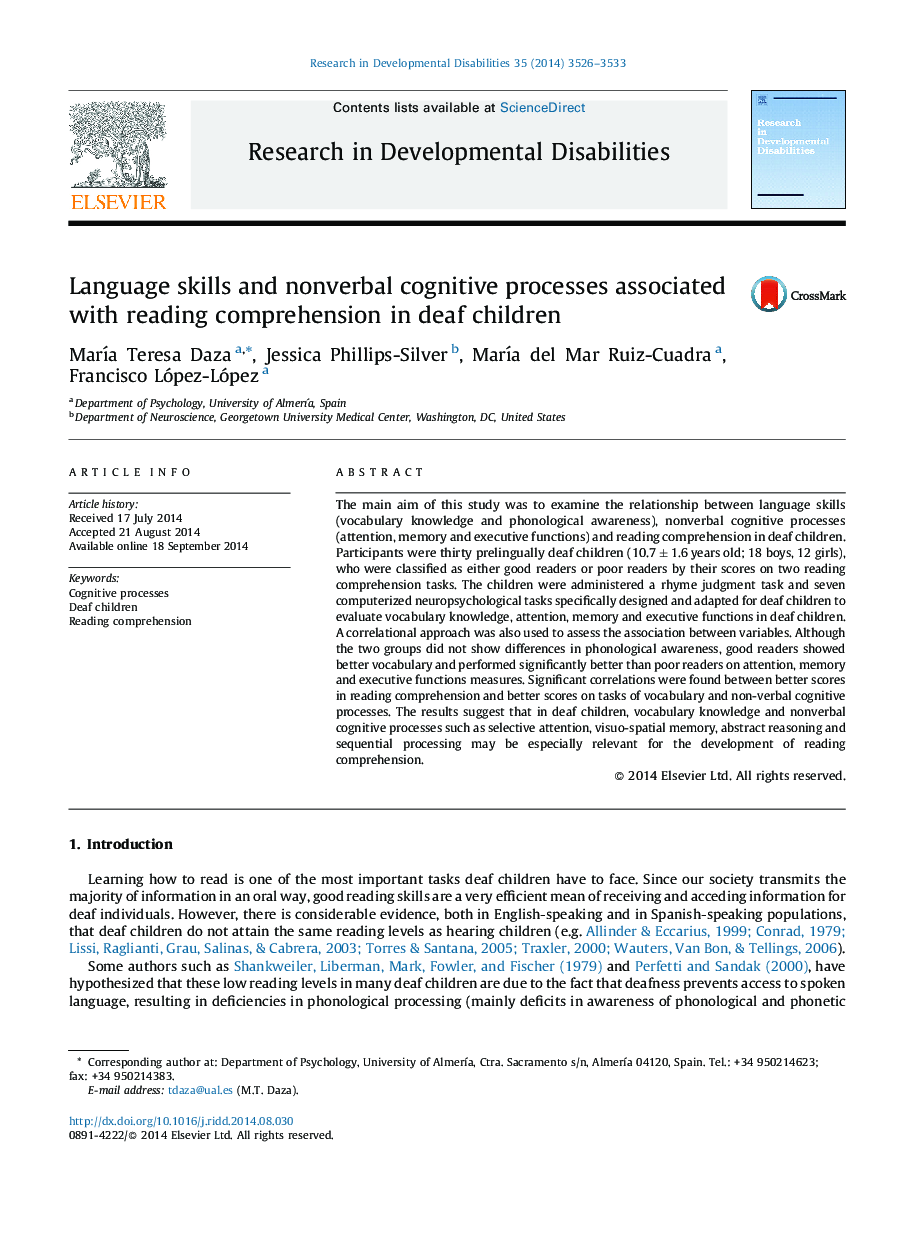| Article ID | Journal | Published Year | Pages | File Type |
|---|---|---|---|---|
| 10317461 | Research in Developmental Disabilities | 2014 | 8 Pages |
Abstract
The main aim of this study was to examine the relationship between language skills (vocabulary knowledge and phonological awareness), nonverbal cognitive processes (attention, memory and executive functions) and reading comprehension in deaf children. Participants were thirty prelingually deaf children (10.7 ± 1.6 years old; 18 boys, 12 girls), who were classified as either good readers or poor readers by their scores on two reading comprehension tasks. The children were administered a rhyme judgment task and seven computerized neuropsychological tasks specifically designed and adapted for deaf children to evaluate vocabulary knowledge, attention, memory and executive functions in deaf children. A correlational approach was also used to assess the association between variables. Although the two groups did not show differences in phonological awareness, good readers showed better vocabulary and performed significantly better than poor readers on attention, memory and executive functions measures. Significant correlations were found between better scores in reading comprehension and better scores on tasks of vocabulary and non-verbal cognitive processes. The results suggest that in deaf children, vocabulary knowledge and nonverbal cognitive processes such as selective attention, visuo-spatial memory, abstract reasoning and sequential processing may be especially relevant for the development of reading comprehension.
Related Topics
Life Sciences
Neuroscience
Behavioral Neuroscience
Authors
MarÃa Teresa Daza, Jessica Phillips-Silver, MarÃa del Mar Ruiz-Cuadra, Francisco López-López,
